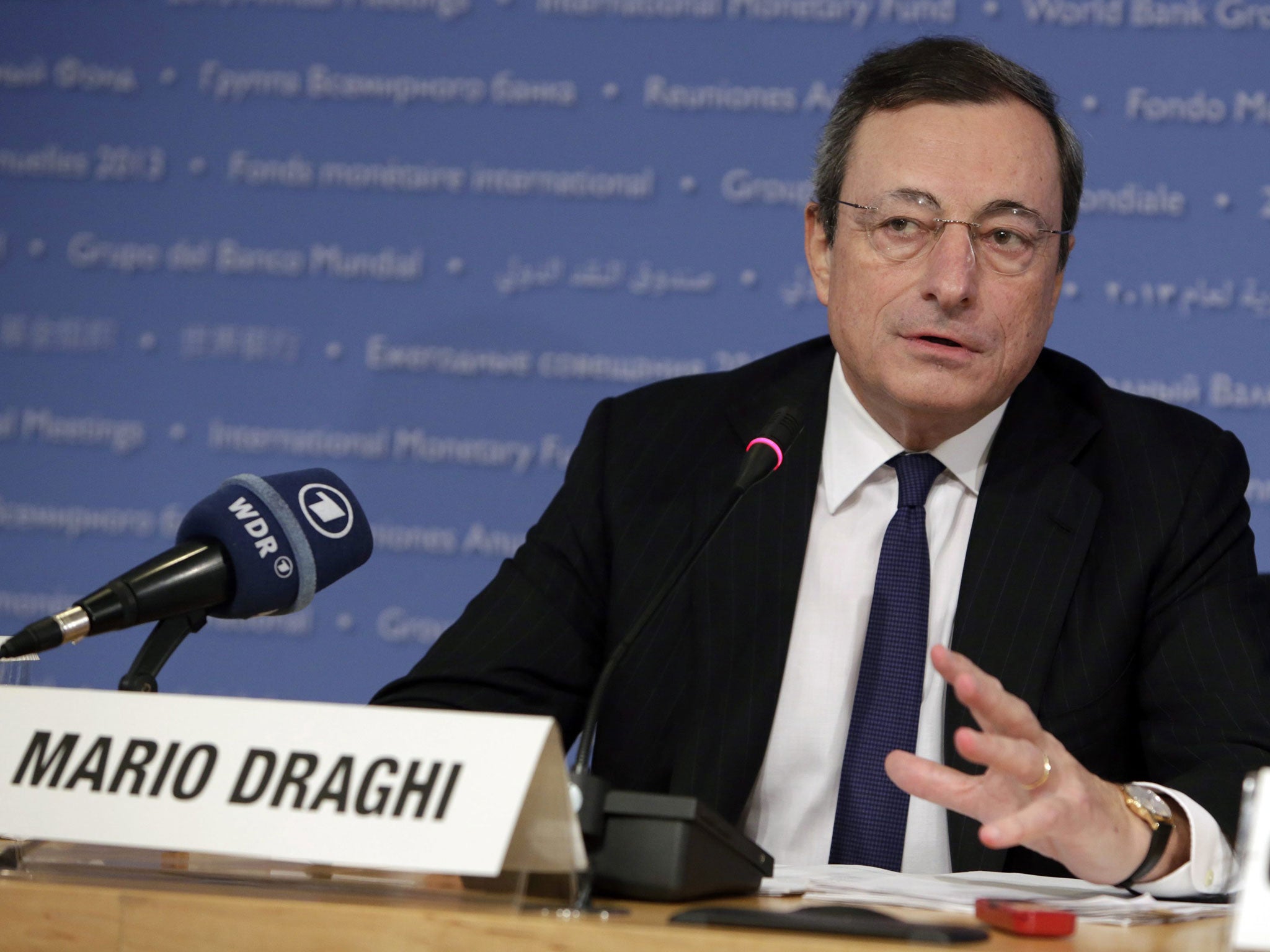The economic nightmare may not be over for Europe
Comment

Your support helps us to tell the story
From reproductive rights to climate change to Big Tech, The Independent is on the ground when the story is developing. Whether it's investigating the financials of Elon Musk's pro-Trump PAC or producing our latest documentary, 'The A Word', which shines a light on the American women fighting for reproductive rights, we know how important it is to parse out the facts from the messaging.
At such a critical moment in US history, we need reporters on the ground. Your donation allows us to keep sending journalists to speak to both sides of the story.
The Independent is trusted by Americans across the entire political spectrum. And unlike many other quality news outlets, we choose not to lock Americans out of our reporting and analysis with paywalls. We believe quality journalism should be available to everyone, paid for by those who can afford it.
Your support makes all the difference.Is the eurozone’s nightmare finally over?
A glance at the numbers seems to support the idea. Current accounts are a rough proxy for the economic health of eurozone states. If a state’s current account is in deficit this means it needs to cover this by borrowing from abroad. In the case of Greece, Portugal and Spain this borrowing had to come from bailout funding from other member states and the European Central Bank. Yet the current account deficits of Greece, Portugal, Ireland and Spain have come down dramatically in recent years, implying that these crisis-hit economies are now close to living within their means.
Other macroeconomic indicators also look better. The borrowing costs of Italy and Spain – which at one point threatened to capsize the entire currency zone – have fallen significantly since the European Central Bank president Mario Draghi stepped in last summer to reassure markets that they would not be left holding worthless pieces of paper. National budget deficits, while also still uncomfortably high, are descending, too, suggesting that states are getting their finances under control.
Even in the darkest economic place in Europe, Greece, there are some glimmers of light. The Greek economy, which has shrunk by a catastrophic 20 per cent since 2009, seems to have eked out a little growth this year, implying that the Hellenic depression has bottomed out. The public backing of the hedge-fund billionaire John Paulson for Greek banks could also help attract other badly needed foreign investment to the country. The currency bloc as a whole emerged from its long recession earlier this year. And surveys of consumer and business confidence have also improved. So time to breathe easy?
Not so fast. In an unnoticed section of its latest World Economic Outlook this week the International Monetary Fund raised doubts about the sustainability of these improvements in the eurozone. The IMF points out that the current account deficits of most struggling economies have contracted mainly as a result of a collapse in imports brought on by recession, rather than a surge in exports. And while labour costs in these economies have come down, this is a result of mass unemployment rather than pay cuts for workers. This means the improvement in these indicators is a result of a cyclical downturn in Europe, rather than structural improvements. “The implication is that current account deficits could widen again significantly when cyclical conditions, including unemployment improve,” says the IMF.
Only further wage and price reductions in the peripheral states – more “internal devaluation”, to use the economic jargon – can deliver a sustainable recovery. But with unemployment still excruciatingly high in the likes of Greece and Spain, that will be difficult. Moreover, to the extent that the internal devaluation does take place, it will (mathematically) make the large accumulated debt piles of peripheral states and the companies within them more expensive to service. Meanwhile, European banks are still sitting on huge piles of toxic loans from the boom years, curbing their ability to lend and support growth. And Berlin has gone cool on the idea of a banking union which could clean up the financial sector.
Germany is not pulling its weight in other respects. Wages and domestic consumption are rising in the eurozone’s largest economy, but not by enough to give a significant boost to its struggling neighbours’ exporters. Germany’s current account surplus remains stubbornly large, obstructing the internal rebalancing that needs to take place if the eurozone is to survive in the long term.
The immediate crisis might have eased but the single currency’s structural economic problems have not been resolved. This is not over.
Join our commenting forum
Join thought-provoking conversations, follow other Independent readers and see their replies
Comments